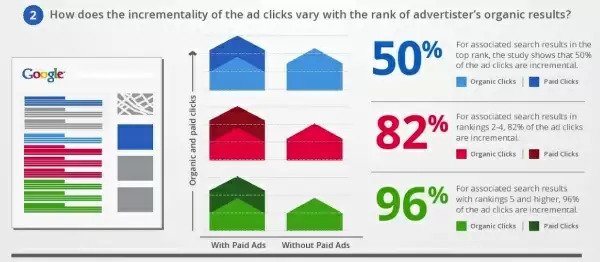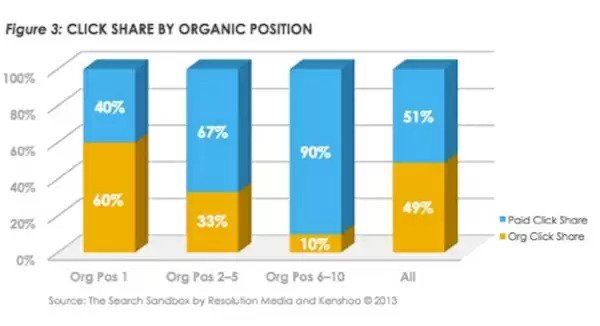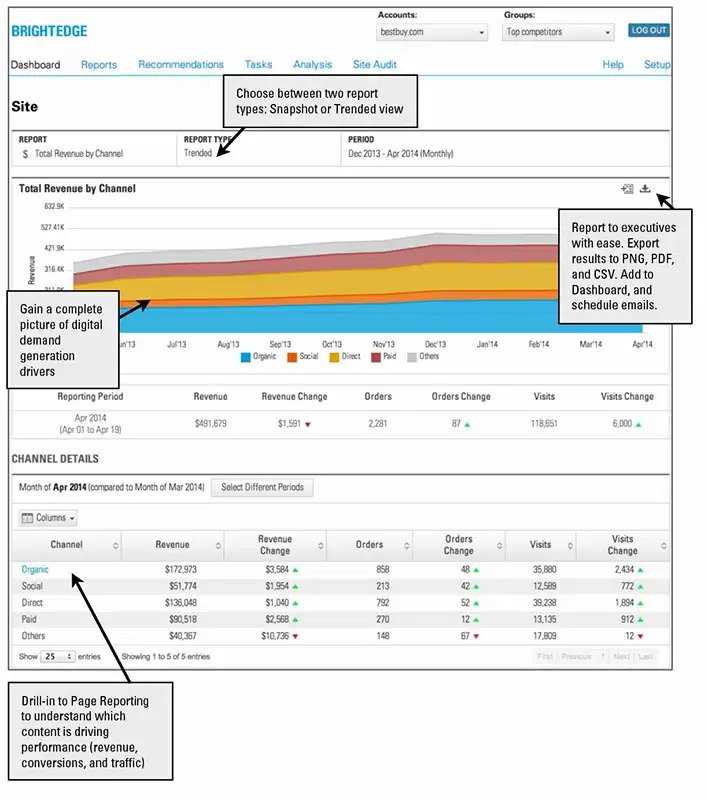Have you heard of the old saying, “One hand doesn’t know what the other is doing”? You’ve most likely experienced the frustration that comes with that when dealing with large organizations and government bureaucracies.
For example, sending a payment well ahead of the cable provider’s due date, only to receive a bill demanding payment immediately. Or diligently forwarding your mail to your new address, but somehow it isn’t arriving. The list goes on and on.
This phenomenon also applies large brands and their marketing, when separate branches or divisions do not communicate with one another. They’re simply “not on the same page,” and more often than not, the company suffers as much as the customer.
When heading up an enterprise-level search marketing strategy, you understand that you can’t afford to waste precious resources on duplicate efforts, much less counterproductive ones. When this manifests as paid and organic search teams that don’t collaborate, it can mean a muddled, disjointed search marketing strategy that’s not making the most of the website’s presence in the search results.
Managing PPC and SEO working together
One of the smartest ways to both streamline and coordinate the search marketing strategy for your company - and maximize its ranking, conversions, and ROI - is to have your SEO and PPC management teams “on the same page” (literally).
A 2012 study by Google focused on the interactions between organic search results and paid ads found that even for sites claiming a No. 1 organic ranking, paid ads provided 50 percent incremental clicks (meaning, half of the top-ranking site’s visits would not have happened without the presence of paid ads).
The authors of Google’s study further noted that PPC percentages increased as a page’s rank in organic decreased, with paid ads providing 82 percent incremental clicks for sites ranking between two and four, then jumping to 96 percent for brands ranking five or lower:

Google’s findings were reinforced by a September 2013 report by Kenshoo, which also analyzed the interplay between paid and organic search (for a major retail division of Hewlett-Packard in the U.S.). For a site ranked No. 1, click share percentage ratios for organic versus paid were 60:40.
In the No. 2 through No. 5 position in the SERP, the correlation dramatically shifted to 33 percent organic to 67 percent paid. The numbers for SERP positions No. 6 through No. 10 were more dramatic still, with organic search clicks at 10 percent to paid search’s 90 percent.

With these two studies, we see PPC traffic rising and falling in conjunction with the organic search results position in a concerted effort to help boost visibility. A great way to access data that shows the relative contributions of SEO and PPC management is through the Google Analytics (GA) multi-channel funnels report.
Generated from conversion paths, this GA report can show you not only which channels contribute to your overall conversions, but also how. BrightEdge also has a fantastic report in its SEO platform that tracks channel performance across organic, paid and much more.

How SEO Informs PPC Strategy
Just as PPC can do some heavy lifting when the organic search results drop, SEO can inform PPC. Now that Google has all but eclipsed keyword search query data from its analytics with the “secure search” initiative, the Web page is now the best unit by which to measure your SEO.
In absence of keyword data, you likely still have high-converting Web pages. BrightEdge S3 helps marketers identify their most valuable Web pages. (If you’re not a BrightEdge customer, GA has data you can mine, too.)
An analysis of this data can lend insight into how your PPC landing pages might be improved, or help you to make decisions about which pages to drive PPC traffic to if two pages could be just as relevant to an ad. However, you can still gain insights into important keywords to your website from other places, Google Webmaster Tools being one of them, and you can use that data to inform your PPC strategy.
SEO also impacts PPC in other ways, for example, AdWords Quality Score, which rates how relevant a page is for an ad. Basic on-page optimization of PPC landing pages helps ensure this type of relevancy. You can also leverage organic rank to determine and control your PPC spend. If you claim the top position in the SERP organically, you might decide there’s no need to also secure the No. 1 position in PPC for a keyword.
Clearly, the relationship between organic and paid search means that your SEO and PPC management teams have valuable information to share, which could lead to better site performance in terms of rankings, click-through rates (CTR), conversions and ROI. The best way to secure that friendly handshake between SEO and PPC management is to ensure your organization’s organic and paid teams have the data they need to support the relationship, and know how to collaborate using that data.

